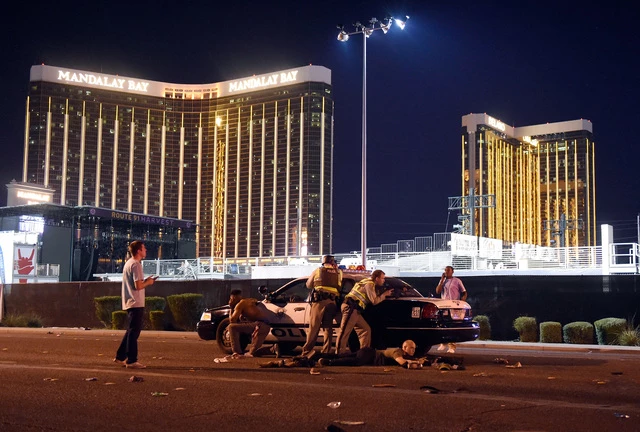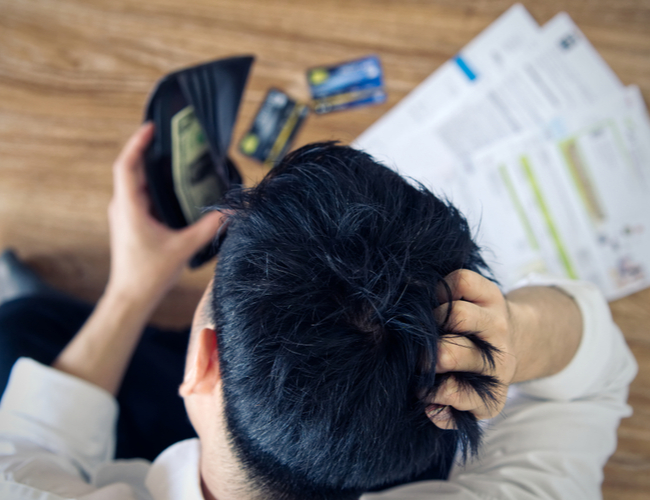Since I have maintained long-term recovery from addicted gambling, the stigma and myths around this addiction continue to grow instead of diminishing. When advocating or speaking, I share that there is no shame in reaching out for help from this destructive disease at the end of my speech.
Yes, gambling addiction is a disease. Once you have lost control over your gambling, you have crossed the line into a full-blown addiction. We all know many things can be addictive, and we use them with no control, like food, coffee, sugar, gambling, drugs, and alcohol, but those are called the “preferences” we may choose to overuse and have no control over how much we use them.
Gambling is the same. That is what I was using, “gambling,” as a coping skill and escape then the slow progression of the disease of addiction began to happen. So I wanted to share my top 5 misconceptions and myths about gambling, problem gambling, and addicted gambling in hopes of debunking them through my experiences. These are the five most asked when mentoring others or speaking at events sharing my recovery from addicted gambling.

– Myth: Gambling addiction only affects the weak-willed or uneducated:
I have heard almost all the myths and misconceptions about problem gambling and full gambling addiction. Through my experiences and years of advocacy work, mentoring, and sponsoring those in early recovery, addicted gambling can and will “touch” all walks of life in any capacity. It affects young and old, rich or poor, highly educated or not, and different working careers.
When I attended Gamblers Anonymous in my early recovery years, I met and supported many recovering gamblers, firefighters, lawyers, doctors, teachers, moms, dads, grandparents, seniors, teens, young adults, and myself, working in the banking industry for 21 + years. It can happen can and touch anyone.
There are a few precursors for some people to possible gambling problems like being raised in a family of problem gamblers, working in the gambling industry, and being around gambling all the time, or a person with untreated mental health issues all can be perfect candidates to have problems in life with gambling later.
– Myth: You can’t become addicted to something like gambling
Sadly, this myth is untrue. Too much of anything in excess opens the door to being addicted to it, like coffee or sugar. Gambling can be addictive as it is a stimulant in the brain to our pleasure and reward system. My gambling began slowly as a problem gambler. Spending too much time and money sometimes, but within a year or two, it became a full-blown addiction.
Generally, others typically can gamble for a few hours of fun and entertainment. Still, I became a gambling addict for various reasons. I learned within treatment and therapy that I was using gambling as a coping skill and an escape from haunting childhood sexual trauma, pain, and abuse.
It is a fact that one in five problem gamblers may try suicide. I know this fact to be true because I had two failed suicide attempts before I entered gambling treatment after spending 30 days in a crisis center twice. My friends at The North American Foundation for Gambling Addiction Help share that approximately 2.6% of the U.S. population has some gambling problems when they gamble often.

– Myth: People with gambling problems are easy to identify:
The fact is, most people can not spot a person who has a problem gambling.
There are no outward appearances as an alcoholic or drug abuser; their external actions show. Not so with addicted gambling. It is an addiction that requires no substance. It still is considered a “silent and hidden addiction.” However, I began to have problems with mood swings and obsessive behaviors. Those were the first signs my husband knew there was a problem.
I hid gambling from my spouse for several years, but my moods, attitude, and behaviors gradually became more extreme. I would be angry or argue with him if I had a bad day of gambling and lost money. I began having more anxiety and mild mania, which my husband noticed because I wanted to go back and gamble to win the money back! I was chasing my losses. Then I began hiding away household money my spouse didn’t know about to gamble with. I started to get late notices for unpaid bills in the mail. I knew then I had a gambling problem.
I had become sucked into “the cycle” of addiction.

– Myth: Gambling is only a problem when you lose every time.
When you have lost control of your gambling, you will lose money most of the time. It is called odds. The more you gamble, the odds of losing will go up.
Once you are within “the cycle” of gambling addiction,’ the disease has you chasing your losses when you lose or if you win? You start thinking you will win all the time!
And if you do win?
You will keep gambling until every penny is gone.
I had done this for many years, deep within my gambling addiction.
There can be some chemical, emotional and physical components to this myth. When I gambled, I could feel when my body would release dopamine which would keep me gambling more often and for more extended periods, and I would do so until the last penny was gone.
When I finally began treatment, I learned I was suffering from undiagnosed mental health disorders I did not know about. The mania came directly from gambling compulsively & obsessively for so long that it aided in my poor choices and thinking. Gambling is gambling regardless of whether you win or lose and can be just from a flip of a coin.

– Myth: Problem gambling isn’t a problem if the gambler can afford it:
No one can truly afford to gamble if they are a problem or addicted gambler!
I have learned this the hard way. This addiction is not about having the money to gamble or if you think you can afford to risk that amount of money. It is purely about the disease and the cycle of this addiction, especially when you cross the line into uncontrolled gambling.
Believe me, if you continue to gamble and it becomes a full-blown addiction, the money will run out sooner or later. A perfect example of this fact, on October 1, 2017, in Las Vegas, Nevada, a shooting happened while a concert was going on, and the shooter began to fire rifle rounds from his 32nd-floor room at concertgoers. The shooter stayed at the famous hotel while attending a video poker tournament.
We learned a few months later the shooter had lost a massive amount of money. Even though a family member told the news media that his brother was wealthy and could afford to gamble as much as he did, media news later reported he had big financial problems from the years of his compulsive gambling habit.
For those like myself who couldn’t afford to gamble as much as I was, it financially devastated my spouse and me. The more money I risked through compulsive gambling, the less we would have for retirement and our future.
I can tell you I have learned much wisdom and life lessons from that addiction and detour in my life. It is why I advocate today within honesty and transparency. There is NO SHAME in seeking help for this cunning and devastating addiction. If I can maintain recovery over 15+ years, I know anyone can!
~Catherine Lyon








